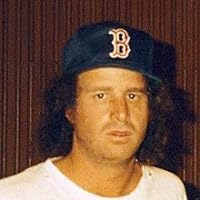Dictionaries Quotes
Quotes tagged as "dictionaries"
Showing 1-17 of 17

“I had a cousin once who lived in your dictionary, inside the binding, and there was a tiny hole which he used for a door, and it led out between trichotomy and trick. Now what do you think of that? It was only a few minutes walk to trigger, then over the page to trinity, trinket and trional, and there my cousin used to fall asleep.”
― Scented Gardens for the Blind
― Scented Gardens for the Blind

“Dictionary, n. A malevolent literacy device for cramping the growth of a language and making it hard and inelastic.”
― The Unabridged Devil's Dictionary
― The Unabridged Devil's Dictionary

“At painful times, when composition is impossible and reading is not enough, grammars and dictionaries are excellent for distraction.”
―
―

“Dictionaries are the record of how people are already using the language, not providers of words for us to start using.”
― Because Internet: Understanding the New Rules of Language
― Because Internet: Understanding the New Rules of Language

“Tugs used to think that everyone's name was in the dictionary, and when she had realized it was only hers, both Tugs and Button, she felt suddenly fond and possessive of it, as if this book were put here for her guidance alone.”
― The Luck of the Buttons
― The Luck of the Buttons

“Dictionaries are like watches; the worst is better than none, and the best cannot be expected to go quite true.”
―
―

“About 35-40% of the time, a player wants to create a word ending in a specific letter. This, however, is not the way we traditionally think, and, not to mention, this is not the way dictionaries are sorted. In other words, in many situations, conventional dictionaries are not arranged in an easy to use manner. This dictionary solves that problem by sorting on the last letter of the word.”
― The Backwords Dictionary: A Word Ending Dictionary
― The Backwords Dictionary: A Word Ending Dictionary
“FV: Annandale defines 'definition' as "an explanation of the signification of a term." Yet Oxford, on the other hand, defines it as "a statement of the precise meaning of a word." A small, perhaps negligible difference you might think. And neither, would you say, is necessarily more correct than the other? But now look up each of the words comprising each definition, and then the definitions of those definitions, and so on. Some still may only differ slightly, while others may differ quite a lot. Yet any discrepancy, large or small, only compounds that initial difference further and further, pushing each 'definition' farther apart. How similar are they then at the end of this process...assuming it ever would end? Could we possibly even be referring to the same word by this point? And we still haven't considered what Collins here...or Gage, or Funk and Wagnalls might have to say about it. Off on enough tangents and you're eventually led completely off track.
ML: Or around in circles.
FV: Precisely!
ML: Oxford, though, is generally considered the authority, isn't it?
FV: Well, it's certainly the biggest...the most complete. But then, that truly is your vicious circle - every word defined...every word in every definition defined...around and around in an infinite loop. Truly a book that never ends. A concise or abridged dictionary may, at least, have an out...
ML: I wonder, then, what the smallest possible "complete dictionary" would be? Completely self-contained, that is, with every word in every definition accounted for. How many would that be, do you suppose? Or, I guess more importantly, which ones?
FV: Well, that brings to mind another problem. You know that Russell riddle about naming numbers?”
― Citations: A Brief Anthology
ML: Or around in circles.
FV: Precisely!
ML: Oxford, though, is generally considered the authority, isn't it?
FV: Well, it's certainly the biggest...the most complete. But then, that truly is your vicious circle - every word defined...every word in every definition defined...around and around in an infinite loop. Truly a book that never ends. A concise or abridged dictionary may, at least, have an out...
ML: I wonder, then, what the smallest possible "complete dictionary" would be? Completely self-contained, that is, with every word in every definition accounted for. How many would that be, do you suppose? Or, I guess more importantly, which ones?
FV: Well, that brings to mind another problem. You know that Russell riddle about naming numbers?”
― Citations: A Brief Anthology

“Wake up to think of words… want to walk through pages of meanings, the links in assonance, alliteration, or just simple sense that moves the eye to leap that way to the next-door play of sound and resonance.”
― Percipience: Outside the range of understood sense
― Percipience: Outside the range of understood sense

“One's freedom is one's love and one's love
is one's undoing, it's all in the dictionary...”
― Valparaiso
is one's undoing, it's all in the dictionary...”
― Valparaiso

“Though words sometimes puzzled Alma, she never looked up any word in any dictionary; a word was like a pebble to be turned briefly in the hand, and tossed away, with no expectation that it would be encountered again.”
― The Tattooed Girl
― The Tattooed Girl

“Since language was increasingly believed to be the semiotic system which could be analyzed with the most profit […] and the system which could serve as a model for all other systems […] the model of the linguistic sign gradually came to be seen as the semiotic model par excellence. // By the time this conclusion was reached ( the definitive sanction took place with Saussure), the linguistic model was crystallized into its 'flattest' form, the one encouraged by the dictionaries and, unfortunately, by a lot of formal logic which had to fill its empty symbols only for the sake of exemplification as well. As a consequence, the notion of meaning as synonymy and as essential definition began to develop.”
― Semiotics and the Philosophy of Language
― Semiotics and the Philosophy of Language

“Every dictionary entry or grammar rule worth its salt is complete with example sentences. Example sentences reinforce, contextualize, and activate; they inspire confidence, as per above, and keep the learner from making silly mistakes.”
― The Art of Learning a Foreign Language: 25 Things I Wish They Told Me
― The Art of Learning a Foreign Language: 25 Things I Wish They Told Me

“As a noun, shit can pretty much be anything. It's one of the most versatile words in this dicktionary.
For instance, 'While I was shitting, my roommate was yelling some shit from the other room about how I always leave my work shit on the table.”
― Cursing with Style: A Dicktionary of Expletives
For instance, 'While I was shitting, my roommate was yelling some shit from the other room about how I always leave my work shit on the table.”
― Cursing with Style: A Dicktionary of Expletives
All Quotes
|
My Quotes
|
Add A Quote
Browse By Tag
- Love Quotes 97k
- Life Quotes 75.5k
- Inspirational Quotes 72.5k
- Humor Quotes 43.5k
- Philosophy Quotes 29.5k
- Inspirational Quotes Quotes 27k
- God Quotes 26k
- Truth Quotes 23.5k
- Wisdom Quotes 23.5k
- Romance Quotes 23k
- Poetry Quotes 22k
- Death Quotes 20k
- Happiness Quotes 18.5k
- Life Lessons Quotes 18.5k
- Hope Quotes 18k
- Faith Quotes 18k
- Quotes Quotes 16.5k
- Inspiration Quotes 16.5k
- Spirituality Quotes 15k
- Religion Quotes 15k
- Motivational Quotes 15k
- Writing Quotes 14.5k
- Relationships Quotes 14.5k
- Life Quotes Quotes 14k
- Love Quotes Quotes 13.5k
- Success Quotes 13.5k
- Time Quotes 12.5k
- Motivation Quotes 12k
- Science Quotes 11.5k
- Knowledge Quotes 11k



